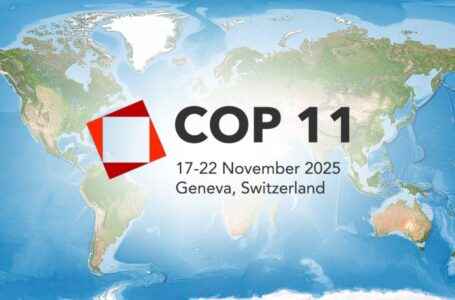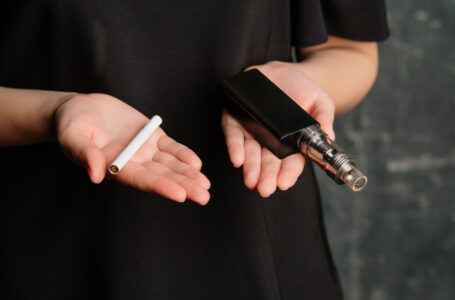The Philippine delegation’s ‘way forward’ approach advocated for state interests and the Filipino people’s welfare at the recently concluded tobacco control conference of the World Health Organization (WHO), said Senior Deputy Executive Secretary Hubert Guevara during a Senate Blue Ribbon committee hearing.
Guevara, who headed the Philippine delegation to the Framework Convention on Tobacco Control’s (FCTC) 10th Conference of the Parties (COP 10), expressed pride at the Philippines’ position during the committee hearing investigating the country’s participation at the 10th Conference of the Parties of the WHO Framework Convention on Tobacco Control (WHO FCTC).
“With all due respect, we were proud of how we conducted ourselves all throughout COP10. We can describe our participation in COP10 as collaborative, flexible, and consensus-building, always advocating for a way forward on deadlock issues,” said Guevara while asserting that the Philippines never blocked consensus on the implementation of FCTC 10 Articles 9 and 10.

Despite receiving a “Dirty Ashtray” award from a non-governmental organization that was not a party to COP proceedings, the Philippine delegation was praised for its collaborative approach while simultaneously upholding national interests by Dr. Nuntavarn Vichit-Vadakan, a committee chair of the World Health Organization’s global treaty on tobacco control and the founding Dean of the School of Global Studies in the Faculty of Public Health at Thammasat University in Thailand.
“I would like to extend my gratitude to the Philippines’ Delegation for your cooperation in reaching a consensus regarding Agenda Item 6.2. Acknowledging the intricacies of the national context of the parties and agreeing to the requests of other parties while upholding your national interests demonstrates the collaborative spirit that is essential in negotiations. I expect that this trend will continue beyond COP 11. It was a delight to meet and collaborate with you all, particularly your distinguished Atty. Hubert Guevara,” Dr. Vichit-Vadakan said in email sent to the Philippine delegation.
Guevara disputed the reason that the Dirty Ashtray Award was conferred to the Philippines. “The much-emphasized Dirty Ashtray award was given to the Philippines supposedly for its brazen use of tobacco industry tactics of obstinate, dispute, and delay throughout the COP. Nothing could be farther from the truth,” Guevara said during the hearing.
Recounting his father passing due to lung cancer, Guevara said: “I saw firsthand the effects of smoking, the pain and suffering it causes. Kaya mahirap po para sakin ang pagbabalanse ng aking ginawa para protektahan ang karapatan ng lahat ng tao sa pagkabuhay. But if by protecting our state policy, the 30,000 or more families whose lives are dependent on tobacco farming, and the rest of our countrymen who are able to avail of the benefits of our health care system, funded by the excise taxes imposed on the sale of tobacco, we are given the Dirty Ashtray Award, then I am willing to own it up as head of the delegation.”
Guevara said that before returning to the Philippines, he discussed with all the members of the delegation about developing an enforcement framework to eradicate or mitigate the illicit trade of tobacco and to stop the sale of e-cigarettes to minors.
Guevara also denied accusations that Philippine team attempted to muddle the discussion and cause more delays.
Guevara said the Philippines suggested a compromise to resolve the deadlock between parties expressing preference for the establishment of an expert group and others favoring the co-activation of the working group. In addition, they requested the Convention Secretariat to clearly delineate the roles or terms of reference of the working group and the expert group.
“We suggested a third option as a possible compromise, supporting the reenactment of the working group composed of state parties working with the expert group, with the latter being accountable to the working group as an advisory and consultative group, and the mandate clearly with the state parties, which cannot be further delegated.” Guevara said.
The Committee A chairperson Dr. Vichit-Vadakan cited the Philippines’ proposal as a middle-of-the-road path that could lead the COP to consensus.
At the informal vote to decide on whether the matter would be deferred to COP 11, Guevara recalled that the Philippines was not in favor of deferring.
He noted that the country’s national statements on the Philippine position were based on RA 9211 and RA 11900, referring to the two legislations which regulate tobacco products including novel and emerging tobacco such as vapes, e-cigarettes, heated tobacco and oral nicotine.
The statements underwent a rigorous drafting process which involved all agencies including the Department of Health (DOH). “At one given time, the representatives met for about seven and a half hours straight to complete the draft statements as can be attested to by the members of the delegation to COP 10,” he said.
In its statement to the COP10, the Philippine delegation highlighted RA 11900 or the Vape Law as a policy that aims to reduce harm from smoking. Guevara noted the importance of a tailored, multi-sectoral approach to FCTC implementation, acknowledging varying national contexts and priorities and domestic legislation.
International harm reduction experts commended the Philippine position with regard to harm reduction.
Martin Cullip, international fellow of the Taxpayers Protection Alliance (TPA) emphasized the Philippines’ strong stance in favor of tobacco harm reduction, instead of an outright ban. “In COP 9, the Philippines said, ‘we are not going to ban these products, we are going to regulate them,’ and this sent shockwaves throughout the meeting,” he noted.
Professor David Sweanor, chair of the advisory board of the Center for Health Law, Policy, and Ethics at the University of Ottawa, supported the country’s resistance to heavily funded efforts denying consumers safer alternatives to smoking cigarettes.
“To criticize a country for defending the right of people to access life-saving products shows a frighteningly authoritarian and moralistic agenda. If we are to successfully reduce cigarette smoking, anti-tobacco groups need to learn from countries like the Philippines rather than denigrate them,” Professor Sweanor said.



















